Text
Sunshine State Under Siege: Florida's Particular Problems with Climate Change
Florida, renowned for its sunny beaches, diverse ecosystems, and vibrant cities, is facing a crisis that threatens its very foundation: climate change. As one of the most vulnerable states in the U.S. to the impacts of a warming planet, Florida is experiencing a myriad of challenges, ranging from rising sea levels to extreme weather events. In this article, we delve into the specific impacts of climate change on the Sunshine State, examining how environmental shifts are reshaping its geography, economy, and communities.
Rising Sea Levels: Threatening Florida's Coastlines
Florida's extensive coastline, stretching over 1,300 miles, is under siege from rising sea levels. With its low-lying geography, even slight increases in sea levels can have devastating consequences. The state is experiencing an acceleration in sea-level rise, attributed primarily to global warming and the melting of polar ice caps. According to scientific projections, sea levels along Florida's coastlines could rise by as much as 3 to 7 feet by the end of the century.
This phenomenon significantly threatens Florida's infrastructure, economy, and natural ecosystems. Coastal erosion intensifies, endangering beaches, homes, and critical infrastructure such as roads, airports, and sewage systems. Saltwater intrusion into freshwater sources jeopardizes drinking water supplies and agricultural lands, exacerbating the state's water management challenges.
Extreme Weather Events: Amplifying Risks
Florida's climate is characterized by its susceptibility to extreme weather events, including hurricanes, flooding, and heat waves. Climate change is exacerbating the frequency and intensity of these events, putting communities at greater risk.
Hurricanes, particularly, are a recurring threat to Florida's coastal regions. Warmer ocean temperatures fuel the formation of stronger hurricanes capable of causing widespread destruction. The 2017 Atlantic hurricane season, which brought Hurricanes Irma and Maria, they are served as a stark reminder of Florida's vulnerability to these natural disasters. The economic toll of hurricane damage and the social and psychological impacts on affected communities underscores the urgent need for climate resilience measures.
Ecological Impacts: Disrupting Florida's Biodiversity
Florida's rich biodiversity, encompassing diverse ecosystems such as wetlands, mangroves, and coral reefs, is facing unprecedented challenges due to climate change. Rising temperatures, changing precipitation patterns, and ocean acidification are disrupting these ecosystems, threatening the survival of numerous plant and animal species.
Mangroves, vital coastal ecosystems that provide protection against storm surges and serve as nurseries for marine life, are receding due to sea-level rise and habitat degradation. Coral reefs, which support many aquatic species and contribute to Florida's tourism industry, suffer from bleaching events caused by warmer ocean temperatures. Loss of biodiversity undermines the ecological resilience of Florida's ecosystems and has profound implications for sectors such as tourism, fishing, and recreation that rely on healthy natural resources.
Economic Vulnerability: Impacts on Key Industries
The impacts of climate change reverberate across Florida's economy, affecting key industries such as tourism, agriculture, and real estate. The state's tourism sector, a cornerstone of its economy, is susceptible to climate-related disruptions, including hurricanes, beach erosion, and algal blooms. Declines in water quality due to pollution and nutrient runoff further diminish the appeal of Florida's beaches and waterways, deterring tourists and harming businesses reliant on tourism revenue.
Agriculture, another vital sector in Florida, faces mounting challenges from changing climate patterns. Rising temperatures, prolonged droughts, and saltwater intrusion threaten crop yields and soil productivity, jeopardizing the livelihoods of farmers and agricultural communities. Real estate markets also feel the heat, as properties in flood-prone areas face declining values and increased insurance costs, raising concerns about long-term financial stability.
Community Resilience: Navigating a Changing Landscape
In the face of mounting climate challenges, Florida communities are increasingly focusing on resilience-building efforts to adapt to and mitigate the impacts of a changing climate. Local governments, nonprofit organizations, and grassroots initiatives collaborate to develop climate action plans, enhance infrastructure resilience, and promote sustainable practices.
Investments in green infrastructure, such as living shorelines, stormwater management systems, and coastal restoration projects, are gaining traction as nature-based solutions to mitigate flooding and erosion. Community engagement and education programs aim to raise awareness about climate risks and empower residents to take action to protect their homes and neighbourhoods.
As the effects of climate change continue to unfold, Florida finds itself at the forefront of a battle against environmental threats that endanger its people, economy, and natural heritage. Rising sea levels, extreme weather events, ecological disruptions, and economic vulnerabilities are reshaping the Sunshine State's landscape, challenging its resilience and adaptive capacity.
However, amidst these challenges, there is hope. Florida can chart a course toward a more resilient and sustainable future by embracing innovation, collaboration, and sustainable practices. Through collective action and a commitment to safeguarding its natural treasures, Florida can weather the storm of climate change and emerge stronger, more resilient, and better prepared to face the challenges of the 21st century.
0 notes
Text
Navigating the Climate Crisis Amidst the Pandemic
The COVID-19 pandemic has dominated headlines and impacted nearly every aspect of our lives for the past few years. Amidst the chaos and uncertainty, it's essential not to lose sight of another global crisis that continues to loom large: climate change. In this article, we'll explore how the pandemic has influenced the fight against climate change, both positively and negatively.
A Breather for the Environment
One of the unintended consequences of lockdowns and travel restrictions during the pandemic was a significant reduction in greenhouse gas emissions. With industries operating at reduced capacity and fewer vehicles on the road, there was a noticeable drop in carbon dioxide (CO2) emissions. This sudden pause in human activity gave the environment a temporary halt.
Reduced emissions led to immediate improvements in air quality in many urban areas. Smoggy skies cleared up, and residents in cities with chronic air pollution experienced fresher, healthier air. It served as a stark reminder of the impact of human activities on air quality and public health.
Shifts in Energy Usage
The pandemic accelerated the adoption of remote work and telecommuting. As offices closed, many commercial buildings saw reduced energy consumption—empty office spaces translate to energy savings in heating, cooling, and lighting. Companies also began to embrace energy-efficient practices to cut costs.
On the flip side, residential energy use surged as people spent more time at home. Remote work, online schooling, and the increased use of electronic devices drove up electricity consumption. This shift placed additional pressure on energy grids and highlighted the need for more sustainable residential energy solutions.
Renewable Energy in the Spotlight
While the pandemic affected energy consumption, the renewable energy sector faced unique challenges. Supply chain disruptions, labor shortages, and financing difficulties impacted the development of renewable energy projects like solar and wind farms, which are crucial for reducing emissions.
However, the pandemic also underscored the importance of investing in green energy for a sustainable future. Some governments and businesses used stimulus packages to support the growth of renewable energy, signaling a commitment to reducing carbon footprints and mitigating climate change.
Impacts on Conservation Efforts
The pandemic's impact on climate change extended beyond emissions and energy use. Reduced human activity and travel had mixed effects on wildlife and ecosystems. Some ecosystems benefited from less human disturbance, while others faced new threats and challenges.
Conservation organizations encountered delays in their projects due to the pandemic. Fieldwork, research, and funding for conservation initiatives were postponed or diverted towards pandemic response efforts. These setbacks posed challenges to the protection of endangered species and habitats.
Government Policies and Climate Action
Several governments recognized the opportunity to pursue green recovery plans to stimulate economic growth while addressing climate change. These plans included investments in clean energy, green infrastructure, and sustainability measures.
Yet, the pandemic also raised questions about balancing economic recovery and environmental protection. Some argued that relaxing environmental regulations or supporting high-carbon industries were necessary for economic revival. This debate highlighted the ongoing tension between economic interests and ecological priorities.
Individual Choices and Behavior
The pandemic prompted many individuals to reevaluate their lifestyles and consumption habits. With more time spent at home, people became more aware of their environmental impact. This led to a surge in sustainable choices, such as reduced meat consumption, gardening, and support for local, eco-friendly products.
On the downside, the pandemic also brought challenges related to single-use plastics. Items like disposable masks and gloves, crucial for public health, contributed to the ongoing plastic pollution problem. Proper waste management and sustainable alternatives have become more critical than ever.
As the world grapples with the ongoing pandemic, we must remember the urgent need to address climate change. The pandemic has offered opportunities and setbacks in the fight against climate change. It temporarily reduced emissions, improved air quality, and renewed commitments to green energy but also disrupted conservation efforts and highlighted the delicate balance between economic recovery and environmental protection.
Individuals' choices and behavior can contribute to a more sustainable future, but systemic changes and government policies are equally crucial. As we navigate these intertwined crises, we must learn from the pandemic's lessons and apply them to the ongoing battle against climate change. Our ability to address both crises will shape the world we leave for future generations.
0 notes
Text

David Hastings Marine Science Exploring Daisy World Systems Approach
To learn more about David Hastings, click the links below:
issuu
0 notes
Text
Florida-Specific Impacts of Climate Change
Florida, known as the Sunshine State, is renowned for its beautiful beaches, lush wetlands, and vibrant wildlife. However, the state's unique geographical features make it particularly vulnerable to the effects of climate change. Rising sea levels, extreme weather events, and changing ecosystems are some Florida-specific impacts of climate change that are already leaving their mark on this coastal paradise. In this article, we will explore these impacts in detail and discuss the importance of addressing them for the well-being of Florida's residents and environment.
Rising Sea Levels
One of the most significant threats Florida faces due to climate change is rising sea levels. Florida's low-lying coastal areas, including Miami, Fort Lauderdale, and Tampa, are particularly susceptible to the consequences of higher sea levels. As global temperatures rise, so do the oceans. The melting of polar ice caps and glaciers contributes to this phenomenon, making it a global issue. However, Florida's geography magnifies the problem.
The state is dotted with porous limestone bedrock, which allows seawater to infiltrate underground aquifers, contaminating freshwater sources. As sea levels rise, saltwater intrusion intensifies, jeopardizing the availability of clean drinking water for millions of Floridians. Moreover, it increases the risk of flooding, making homes and infrastructure vulnerable to damage. Coastal erosion also becomes a pressing concern, threatening beachfront communities and tourism, a critical economic driver for the state.
Increased Hurricane Intensity
Florida has long been accustomed to hurricanes, but climate change exacerbates their impact. Rising sea surface temperatures give hurricanes more energy, leading to more substantial and destructive storms. The 2017 Atlantic hurricane season they featured hurricanes Harvey, Irma, and Maria as a grim reminder of the potential devastation these storms can bring.
With Florida's extensive coastline, hurricanes significantly threaten both lives and property. Coastal cities and communities are at high risk of damage from storm surges, flooding, and high winds. The frequency and intensity of these storms are expected to increase, necessitating better preparedness and resilience strategies for the state.
Changing Ecosystems
Florida's unique ecosystems, including the Everglades, mangrove forests, and coral reefs, are threatened by climate change. Rising temperatures, ocean acidification, and altered precipitation patterns disrupt these delicate environments, leading to cascading effects on biodiversity.
The Everglades, often called the "River of Grass," are particularly vulnerable. Changes in water flow patterns and increased salinity levels harm the unique plant and animal species that call this wetland home. Similarly, warming seas stress coral reefs, leading to coral bleaching and reduced habitat for marine life. Mangrove forests protect against storm surges and are also at risk as sea levels rise.
Health Impacts
Climate change doesn't just affect the environment; it also poses health risks to Floridians. The state's hot and humid climate, coupled with the increasing frequency of extreme heat events, can lead to heat-related illnesses and fatalities. Vulnerable populations, such as the elderly and those with preexisting health conditions, are particularly at risk.
Moreover, the changing climate creates favorable conditions for spreading vector-borne diseases, such as Zika and West Nile. Warmer temperatures allow disease-carrying mosquitoes to thrive, putting public health at risk.
Economic Consequences
The impacts of climate change in Florida have far-reaching economic implications. The state's economy relies heavily on tourism, agriculture, and real estate. Rising sea levels, more intense hurricanes, and damage to natural attractions like coral reefs can deter tourists and reduce revenue. Moreover, the agriculture industry faces challenges such as increased heat stress on crops, changing precipitation patterns, and saltwater intrusion into farmland, all of which threaten food security and livelihoods.
Real estate values are also at risk, particularly in coastal areas. Properties exposed to flooding and erosion may lose weight, affecting homeowners and local tax revenues. Insurers face mounting claims from climate-related disasters, potentially leading to higher premiums for residents and businesses.
Florida's geography and climate make it uniquely susceptible to the impacts of climate change. The state must confront the challenges of rising sea levels, increased hurricane intensity, changing ecosystems, health risks, and economic consequences. Mitigation efforts, such as reducing greenhouse gas emissions and transitioning to renewable energy sources, are essential to slowing the pace of climate change. Adaptation strategies, including improved infrastructure resilience and conservation efforts, are crucial for safeguarding Florida's future.
Addressing Florida-specific impacts of climate change requires a collective effort from government, businesses, and individuals. The state's well-being, natural beauty, and economic prosperity depend on taking action to mitigate and adapt to these challenges. By working together, Floridians can protect their beloved state from the worst effects of climate change and ensure a sustainable future for generations to come.
0 notes
Text

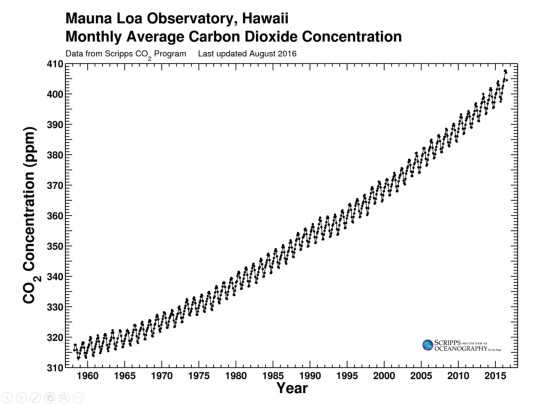


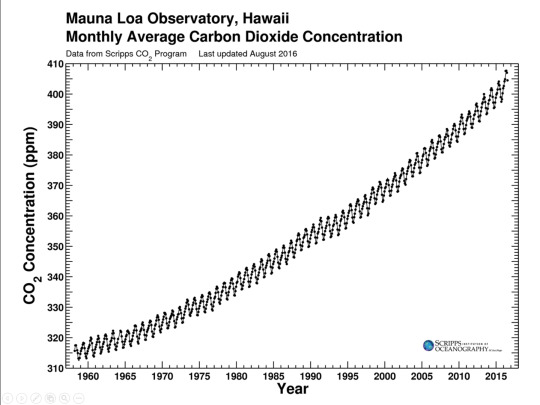

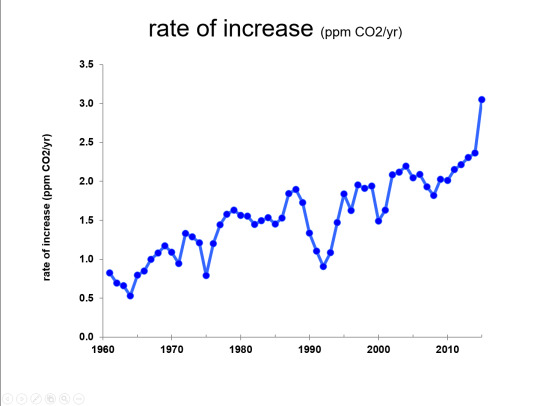


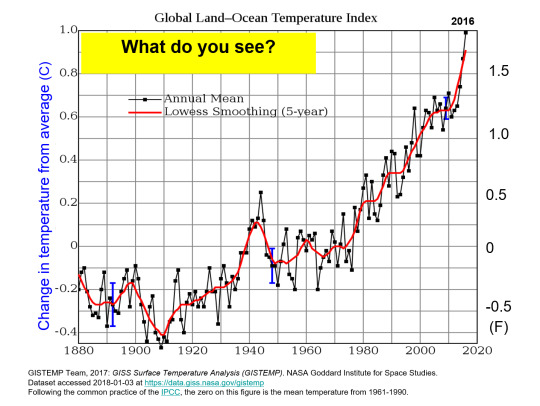
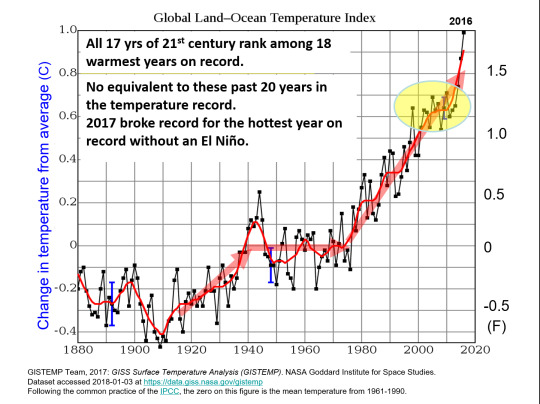
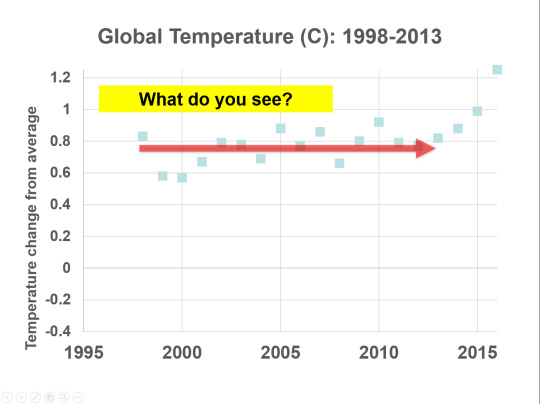
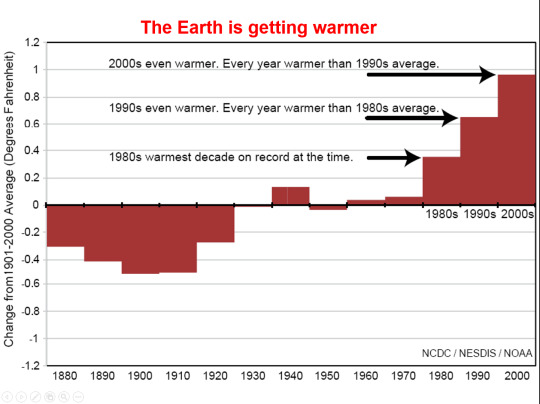
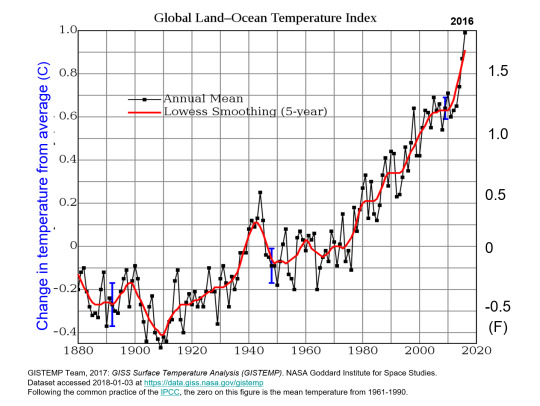






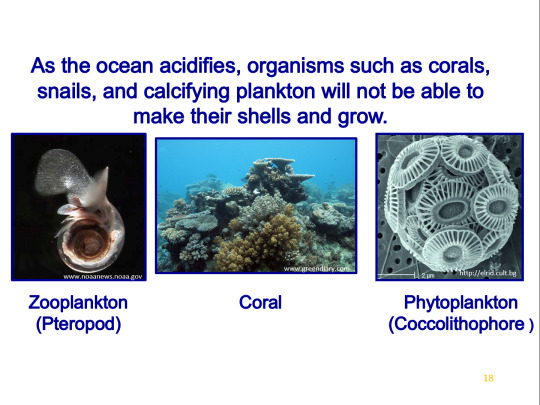

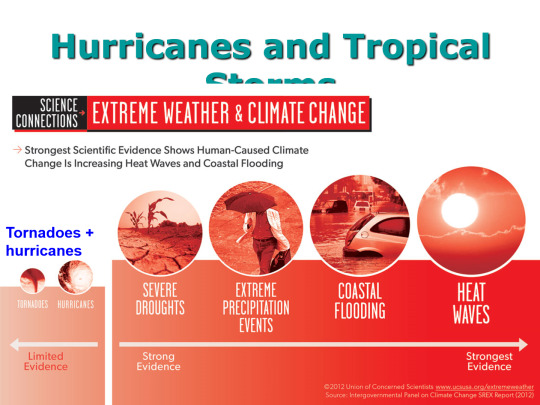
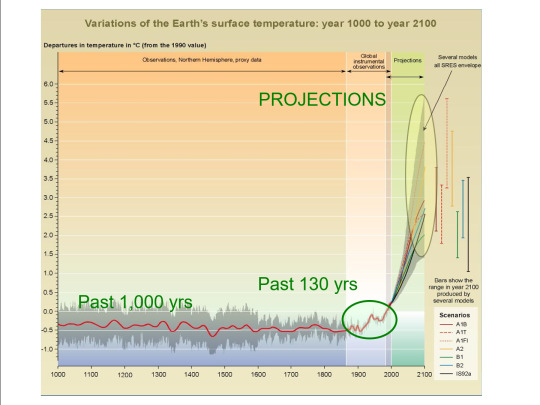


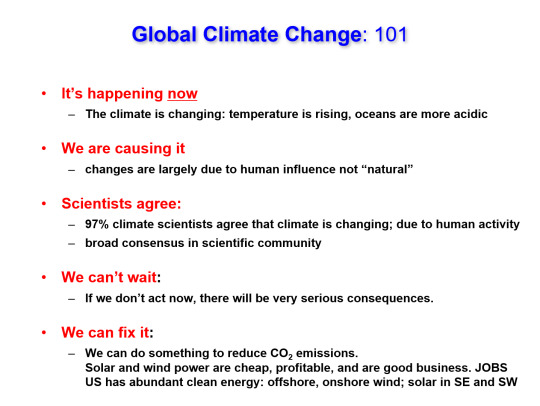
Global Environmental Change Lecture Notes
The Earth System
Dr. David Hastings, Eckerd College
0 notes
Text
What Subjects Are Needed for Marine Geochemistry?
Marine geochemistry is a fascinating field that explores the chemical composition and processes that occur in the world's oceans. It plays a crucial role in understanding the Earth's natural systems, environmental changes, and the impact of human activities on marine ecosystems. To become proficient in marine geochemistry, one must have a strong foundation in several key subjects. In this article, we will delve into the issues required for a career in marine geochemistry and why they are essential.
Chemistry
Chemistry is the backbone of marine geochemistry. A solid understanding of chemical principles is essential for analyzing and interpreting the complex compositions of seawater, sediments, and rocks found in marine environments. This includes knowledge of chemical reactions, thermodynamics, kinetics, and analytical techniques such as spectrophotometry and chromatography. Marine geochemists use chemistry to study the distribution of elements and compounds in seawater and sediments, as well as the processes that drive their transformation.
Geology
Geology is another fundamental subject for marine geochemists. It provides insights into the formation and composition of marine sediments and rocks, which play a critical role in understanding the geological history of the oceans. Geologists study the Earth's structure, tectonic processes, and the deposition of sediments on the seafloor. This knowledge helps marine geochemists analyze sediment cores and decipher the environmental conditions of the past.
Oceanography
Oceanography is the study of the physical and biological aspects of the ocean. Marine geochemists must understand ocean circulation, currents, and the interaction between seawater and the atmosphere. Oceanographic knowledge is crucial for tracing the movement of chemical compounds in the ocean, including nutrients, pollutants, and trace elements. It also helps in understanding how different oceanographic processes influence the chemistry of marine environments.
Environmental Science
Environmental science provides the broader context for marine geochemistry. It covers topics such as ecology, climate change, and pollution. Marine geochemists often work to assess the impact of human activities on marine ecosystems, including the effects of climate change, pollution from industrial and agricultural sources, and the health of coral reefs and other sensitive habitats. Understanding environmental science is essential for making informed decisions and recommendations to protect marine environments.
Mathematics and Statistics
Quantitative skills are vital in marine geochemistry, as researchers often need to process and analyze large datasets. Mathematics and statistics are used to model chemical reactions, calculate elemental concentrations, and perform statistical tests to draw meaningful conclusions from data. Proficiency in these subjects ensures that marine geochemists can accurately interpret their findings and make informed scientific judgments.
Biology
While marine geochemistry primarily focuses on the chemical aspects of aquatic environments, biology also plays a significant role. Understanding marine biology helps in assessing the impact of chemical changes on marine organisms and ecosystems. Marine geochemists work with biologists to investigate the effects of ocean acidification, nutrient pollution, and other chemical alterations on marine life. This interdisciplinary approach is critical for addressing complex ecological issues.
Computer Science and Data Analysis
In today's digital age, computer science and data analysis skills are invaluable for marine geochemists. These skills enable researchers to create models, process large datasets, and visualize complex information. Programming languages like Python and R are commonly used for data analysis and visualization in marine geochemistry. Proficiency in computer science allows researchers to automate tasks, develop specialized software, and improve the efficiency of data analysis.
Remote Sensing and GIS
Remote sensing and Geographic Information Systems (GIS) are essential tools for marine geochemists studying large-scale ocean processes and spatial distribution of chemical parameters. These technologies enable researchers to collect and analyze data from satellites, buoys, and other remote sensors. GIS is used to create maps and visualize spatial relationships, making it easier to study the distribution of chemical compounds in the ocean and their impact on coastal regions.
Marine Chemistry
Marine chemistry is a specialized field focusing on the chemical processes occurring in marine environments. It delves deep into the unique challenges and intricacies of aquatic chemistry, including the study of carbonate chemistry, redox reactions, and the behavior of trace elements. Maritime chemistry courses provide a tailored curriculum that equips students with the specific knowledge needed for marine geochemistry research.
Fieldwork and Laboratory Techniques
Hands-on experience in the field and the laboratory is essential for marine geochemists. Fieldwork allows researchers to collect samples from aquatic environments, such as coastal areas, deep-sea hydrothermal vents, and coral reefs. Laboratory techniques involve the precise analysis of these samples using advanced instrumentation. Courses and training in fieldwork and laboratory techniques prepare students for the practical aspects of marine geochemistry research.
A career in marine geochemistry requires a multidisciplinary approach, drawing from various scientific subjects. Chemistry, geology, oceanography, environmental science, mathematics, biology, computer science, remote sensing, GIS, marine chemistry, and fieldwork/laboratory techniques all contribute to a comprehensive understanding of aquatic environments and the chemical processes within them. By mastering these subjects, aspiring marine geochemists can contribute to our understanding of the oceans, address pressing environmental issues, and work towards the conservation and sustainable management of marine ecosystems.
0 notes
Text
Unleashing Nature's Fury: How Climate Change is Making Hurricanes Stronger
Hurricanes are among nature's most powerful and destructive phenomena, capable of causing immense devastation to coastal communities and ecosystems. In recent years, there has been a noticeable increase in the frequency and intensity of hurricanes, leaving scientists and experts to explore the role of climate change in this alarming trend. This article delves into the intricate relationship between climate change and the strengthening of hurricanes, shedding light on the mechanisms behind this phenomenon and the potential consequences for our planet.
The Mechanics of Hurricane Formation
Before delving into the effects of climate change, it's crucial to understand how hurricanes form and intensify. These massive storms typically begin as clusters of thunderstorms over warm ocean waters. As the ocean's surface temperature rises, it provides the energy needed for the storm to gain strength. When warm, moist air rises from the ocean's surface, it creates an area of low pressure beneath it. This, in turn, draws in surrounding air, causing it to heat up and rise, initiating a cycle of convection.
The Coriolis effect, a result of the Earth's rotation, causes the rising air to spin and form a low-pressure center, known as the eye of the hurricane. As the cycle continues, the storm gathers energy and moisture, causing it to intensify. This is where climate change comes into play.
The Warming Oceans
One of the most significant contributors to the intensification of hurricanes is the warming of ocean waters. Climate change has led to a substantial increase in sea surface temperatures, especially in tropical regions. Warm water is like fuel for hurricanes, providing the necessary heat and moisture to drive their development and strengthen them. The warmer the water, the more energy a hurricane can absorb, leading to a more powerful storm.
The Atlantic Ocean has witnessed rising sea surface temperatures in recent years, creating an environment conducive to hurricane formation and growth. Hurricanes like Harvey (2017), Irma (2017), and Maria (2017) were fueled by abnormally warm ocean waters, resulting in unprecedented rainfall and wind speeds that caused widespread destruction.
Changing Atmospheric Conditions
Climate change also impacts the atmospheric conditions that influence hurricane behavior. Warmer air can hold more moisture, leading to increased precipitation within hurricanes. This results in heavier rainfall and a higher risk of flooding in affected areas. Furthermore, climate change can alter wind patterns, affecting hurricanes' steering currents. This alteration can lead to storms stalling or changing course, making them more unpredictable and potentially destructive.
Rising Sea Levels and Storm Surge
Another critical factor exacerbated by climate change is rising sea levels. Glaciers and polar ice caps melt as global temperatures rise, causing sea levels to increase. Higher sea levels mean hurricanes can push more water onto the coastlines during storm surges, leading to more extensive and devastating flooding. This combination of stronger hurricanes and rising sea levels has the potential to inundate low-lying coastal areas, displacing communities and causing economic and ecological upheaval.
Positive Feedback Loops
One of the most concerning aspects of climate change and hurricane intensity is the potential for positive feedback loops. As hurricanes become stronger and more frequent, they can disrupt natural processes that help regulate the climate. For instance, storms can churn up deep, cold ocean waters, releasing heat-trapping greenhouse gases like methane and carbon dioxide, further contributing to global warming. This creates a vicious cycle in which climate change begets stronger hurricanes, which, in turn, contribute to more severe climate change.
The Human Toll
The consequences of stronger hurricanes are far-reaching, significantly impacting human lives and well-being. Communities in hurricane-prone regions are at greater risk of experiencing catastrophic damage and loss of life. The disaster response and recovery costs increase as storms intensify, straining resources and infrastructure. The long-term effects of repeated hurricane damage can lead to a decline in affected areas' economic and social stability.
Adaptation and Mitigation
While the link between climate change and stronger hurricanes is clear, it is possible. Efforts to mitigate and adapt to these changes are crucial. Governments, communities, and individuals must work together to reduce greenhouse gas emissions, transition to renewable energy sources, and implement resilient infrastructure and building practices in hurricane-prone regions. Additionally, investing in early warning systems and disaster preparedness can save lives and reduce the impact of these increasingly powerful storms.
The evidence is mounting, and the science is precise: climate change is making hurricanes more robust and destructive. The warming of ocean waters, changing atmospheric conditions, rising sea levels, and positive feedback loops all contribute to this concerning trend. Addressing the issue requires a global commitment to reducing greenhouse gas emissions, adapting to the changing climate, and developing strategies to protect vulnerable communities. Our planet's future and our coastal regions' safety depend on our ability to take decisive action in the face of this growing threat.
0 notes
Text
Understanding the Depths: What Can I Do with a Bachelor in Marine Science?
If you have a passion for the sea and a Bachelor of Marine Science in hand, you're in for a fascinating and dynamic career journey. The marine science field offers a vast array of opportunities that cater to diverse interests and skillsets. In this article, we will dive deep into the question, "What can I do with a Bachelor of Marine Science?" and explore the multitude of career paths available for graduates in this field.
Research and Conservation
One of the most compelling aspects of a Bachelor of Marine Science is the opportunity to engage in research and conservation efforts that directly impact the health and sustainability of our oceans. As a marine scientist, you can work in research institutions, non-profit organizations, or government agencies dedicated to studying marine ecosystems.
Marine biologists study the biology, behavior, and ecology of marine organisms. They investigate marine ecosystems, from coral reefs to polar ice caps, and often play a crucial role in marine conservation efforts. Marine biologists can work in the field, collecting data on marine life, or in laboratories conducting experiments and analyzing samples.
Oceanographers focus on the physical, chemical, and geological aspects of the ocean. They study ocean currents, marine geology, and the composition of seawater. Oceanographers are essential for understanding climate change, predicting weather patterns, and managing coastal resources.
Marine Conservationist
Marine conservationists work tirelessly to protect and preserve marine ecosystems. They collaborate with governments, NGOs, and local communities to develop strategies for sustainable fisheries, combat pollution, and conserve endangered species. A Bachelor of Marine Science provides a strong foundation for a career in marine conservation.
Marine science graduates are also highly sought after in various industry and government roles that rely on their specialized knowledge of the marine environment.
Fisheries managers are responsible for regulating and overseeing fishing activities to ensure sustainable fish populations. They work closely with government agencies and commercial fisheries to develop and enforce regulations that protect marine resources.
Environmental Consultant
Environmental consultants specializing in marine science help businesses and organizations comply with environmental regulations. They assess the impact of projects on the marine environment and provide recommendations for mitigating potential harm.
Marine policy analysts work at the intersection of science and policy, shaping regulations and legislation related to marine conservation and resource management. They often collaborate with government agencies, NGOs, and research institutions to develop evidence-based policies.
If you're passionate about sharing your love for the ocean and its wonders with others, there are plenty of opportunities in education and outreach.
Marine Educator
Marine educators teach students of all ages about marine science and conservation. They may work in schools, aquariums, museums, or as part of outreach programs, inspiring the next generation of marine enthusiasts.
Science communicators use their knowledge of marine science to bridge the gap between scientists and the general public. They write articles, create videos, and engage in public speaking to convey complex scientific concepts in an accessible and engaging manner.
While a Bachelor of Marine Science opens up many career paths, some individuals choose to further their education by pursuing advanced degrees.
A Master's degree in Marine Science provides in-depth knowledge and research opportunities. Graduates with a Master's degree often qualify for higher-level positions and research roles.
Ph.D. in Marine Science
For those seeking a career in academia or conducting cutting-edge research, a Ph.D. in Marine Science is a common path. This level of education can lead to professorships, research grants, and leadership positions in marine science organizations.
A Bachelor of Marine Science is your passport to a world of exciting and meaningful career opportunities. Whether you're passionate about research and conservation, interested in government and industry roles, dedicated to education and outreach, or have your sights set on advanced degrees, the field of marine science offers a diverse array of paths to explore. With dedication and a deep love for the ocean, you can make a lasting impact on the health and sustainability of our planet's most precious resource – the sea. So, if you're wondering what you can do with a Bachelor of Marine Science, remember that the ocean is your oyster, waiting to be explored and protected.
0 notes
Text
0 notes
Text
0 notes
Text
0 notes
Text
0 notes
Text
0 notes
Text
0 notes
Text
The Deepwater Horizon Oil Spill's Lingering Effects
The Deepwater Horizon oil spill of 2010, often referred to as the BP oil spill, stands as a stark reminder of the far-reaching consequences of environmental negligence. A decade after the catastrophic event, the repercussions of the oil spill continue to reverberate throughout ecosystems, economies, and policy landscapes. This article takes a closer look at the lasting impacts of the Deepwater Horizon oil spill and the ongoing efforts to mitigate its aftermath.
A Disastrous Ecological Unraveling
The immediate aftermath of the Deepwater Horizon explosion witnessed a haunting spectacle as vast expanses of the ocean were tainted by the relentless flow of crude oil. The spill's toxic concoction disrupted marine food chains, leading to widespread ecological imbalances. The delicate balance of marine ecosystems was upended as species struggled to survive amidst contaminated waters and oil-coated habitats. Coral reefs, seagrass beds, and marshlands suffered irreparable damage, further intensifying the crisis.
Legacy of Wildlife Mortality
The effects of the oil spill on wildlife were nothing short of catastrophic. Birds, turtles, dolphins, and countless other marine creatures succumbed to the toxic oil, with estimates of the death toll ranging from hundreds of thousands to over a million. Even a decade later, studies reveal that certain animal populations have not yet fully recovered. The spill's impact on reproductive cycles and genetic diversity continues to be a concern for the long-term viability of several species.
Coastal Communities in Turmoil
Beyond the environmental toll, the Deepwater Horizon oil spill exacted a heavy toll on the human communities along the Gulf Coast. Fisheries, a cornerstone of the region's economy, faced widespread closures, leaving thousands without livelihoods. Tourism, another economic mainstay, took a nosedive as beaches were fouled and the allure of coastal getaways faded. The ripple effect was felt in property values, local businesses, and the mental well-being of those who depended on the Gulf for their way of life.
Unveiling Health Hazards
Tragedy extended beyond wildlife and economies, as the health of those involved in cleanup operations and residing in impacted areas was compromised. Exposure to toxic chemicals present in the oil and dispersants led to a range of health issues, including respiratory problems, skin irritations, and even neurological symptoms. The long-term consequences of this exposure continue to be studied, underscoring the importance of precaution and preparedness during such crises.
Regulation and Preparedness Reforms
The Deepwater Horizon disaster acted as a catalyst for regulatory reform and heightened preparedness in the oil and gas industry. The incident underscored the need for more stringent safety measures, environmental safeguards, and contingency plans. The importance of thorough risk assessments, regular safety drills, and technological advancements in preventing and managing future spills became evident, prompting industry-wide introspection and change.
A Commitment to Restoration
In the aftermath of the spill, extensive efforts have been undertaken to restore the Gulf's damaged ecosystems and economies. Restoration projects have ranged from marshland revitalization to the creation of artificial reefs. Funds from legal settlements have been directed toward initiatives aimed at addressing the environmental harm caused by the spill. These ongoing endeavors exemplify the dedication to healing and rejuvenating a region still grappling with the scars of the disaster.
Looking Forward with Vigilance
A decade later, the Deepwater Horizon oil spill continues to provide valuable lessons about the fragility of our environment and the enduring consequences of negligence. It underscores the imperative of corporate responsibility, regulatory vigilance, and international cooperation in preventing and mitigating environmental catastrophes. As we navigate an increasingly complex world, the legacy of the Deepwater Horizon serves as a poignant reminder that the pursuit of progress must harmonize with the preservation of our planet's intricate ecosystems.
The Deepwater Horizon oil spill remains an indelible mark on environmental history, serving as a stark testament to the devastating impact of industrial mishaps on ecosystems, wildlife, and human livelihoods. Its legacy endures as a rallying cry for heightened environmental stewardship, reminding us that the choices we make today shape the world we leave for future generations. While the scars may linger, the tragedy of the Deepwater Horizon serves as a powerful incentive to collectively strive for a more sustainable and responsible future.
0 notes



